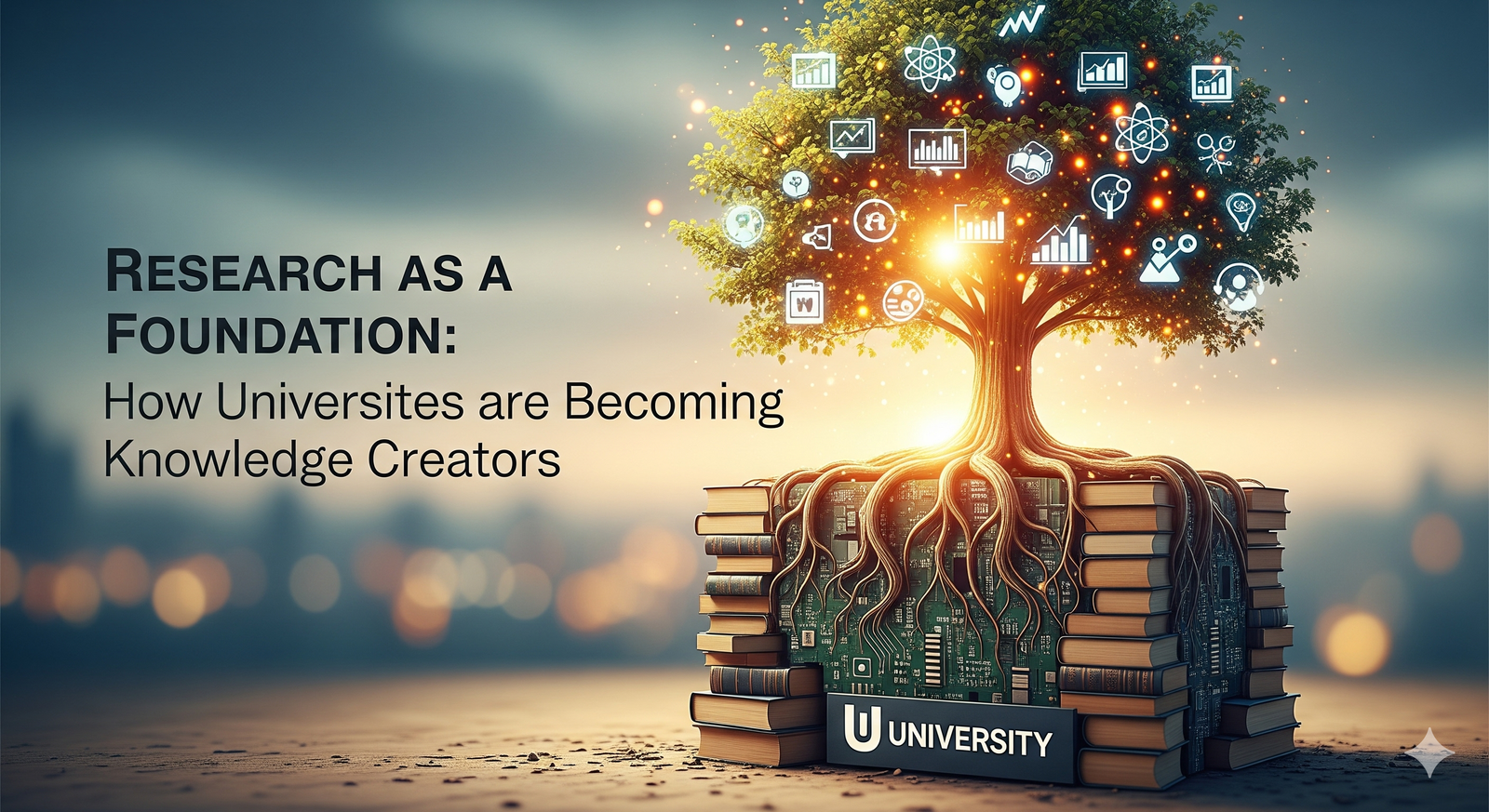
In the ever-evolving landscape of higher education, universities are no longer confined to the traditional role of transmitting knowledge. Instead, they are emerging as active creators of knowledge, driving innovation, shaping industries, and contributing solutions to global challenges. Research, once seen as a specialized domain for academics, has now become the foundation of a university’s identity and impact. From laboratories to think tanks, from interdisciplinary collaborations to student-led initiatives, research has become the lifeblood of institutions that aspire not only to educate but also to transform societies.
Historically, universities were centers for teaching and intellectual discourse. Their primary responsibility was to equip students with knowledge passed down through generations. However, as the world entered the information age and economies became knowledge-driven, universities recognized the need to go beyond teaching and become hubs of discovery.
Today, leading institutions view themselves as knowledge creators, producing new ideas, technologies, and frameworks that feed back into both the academic system and society at large. This shift has expanded their role: universities now stand at the intersection of education, research, and innovation.
Advancing Human Knowledge
Research pushes the boundaries of what we know. Universities explore fundamental questions—whether in science, arts, humanities, or technology—contributing to the global pool of understanding.
Driving Economic Growth
Innovation-driven economies rely on research. Universities produce patents, spin-off companies, and entrepreneurial ventures, strengthening regional and global economies.
Solving Real-World Problems
From climate change and pandemics to cybersecurity and social inequality, university research provides data-driven solutions that governments, businesses, and communities can act upon.
Shaping Policy and Governance
Evidence-based policymaking often stems from academic research. Universities are critical advisors in shaping national and international policies.
Enhancing Teaching and Learning
Research-active faculty bring cutting-edge insights to the classroom, ensuring students learn not just established facts but also how knowledge is created and challenged.
Interdisciplinary Collaboration
The biggest problems today—like sustainability or AI ethics—cannot be solved by one discipline alone. Universities foster cross-departmental research, bringing together scientists, economists, sociologists, and more.
Industry Partnerships
Universities partner with private industries to translate research into market-ready innovations. This creates a bridge between theory and practice, ensuring discoveries don’t stay confined to journals.
Research-Led Teaching
Students are increasingly involved in research from undergraduate levels, learning to think critically, solve problems, and innovate. This student-as-researcher model creates a culture of inquiry.
Global Collaboration
Research is borderless. Universities collaborate internationally, pooling expertise and resources to address shared global challenges.
While the role of universities is expanding, challenges remain:
Funding Constraints: Research is resource-intensive, and universities often struggle to secure long-term funding.
Balancing Teaching and Research: Faculty are under pressure to excel at both, leading to time and resource conflicts.
Accessibility of Research: Knowledge creation risks remaining in academic silos unless efforts are made to communicate findings to the wider public.
Ethical Considerations: From AI to genetic engineering, universities must ensure research is conducted responsibly and for the greater good.
1. Universities generate over 70% of fundamental research worldwide, underscoring their role in shaping future technologies.
2. Student involvement in research boosts employability by developing transferable skills like critical thinking, problem-solving, and adaptability.
3. Some of the world’s most impactful inventions—like the internet, MRI scanners, and even Google’s search engine—originated from university-led research projects.
4. Universities increasingly act as innovation ecosystems, creating startup incubators, accelerators, and entrepreneurship hubs on campus.
5. Open-access publishing driven by universities ensures that knowledge creation is not limited to wealthy institutions but shared globally.
Looking ahead, universities will continue to evolve as dynamic engines of discovery and impact. Artificial intelligence, digital collaboration tools, and open research platforms are transforming how knowledge is created and shared. Universities that embrace inclusivity, innovation, and interdisciplinary approaches will not only remain relevant but also become indispensable leaders in shaping the future of humanity.
Research is no longer a byproduct of universities—it is their foundation and identity. By fostering innovation, driving economies, solving pressing global issues, and shaping future leaders, universities are proving themselves to be true creators of knowledge. As society confronts challenges of unprecedented complexity, the role of universities in producing and disseminating knowledge has never been more vital.